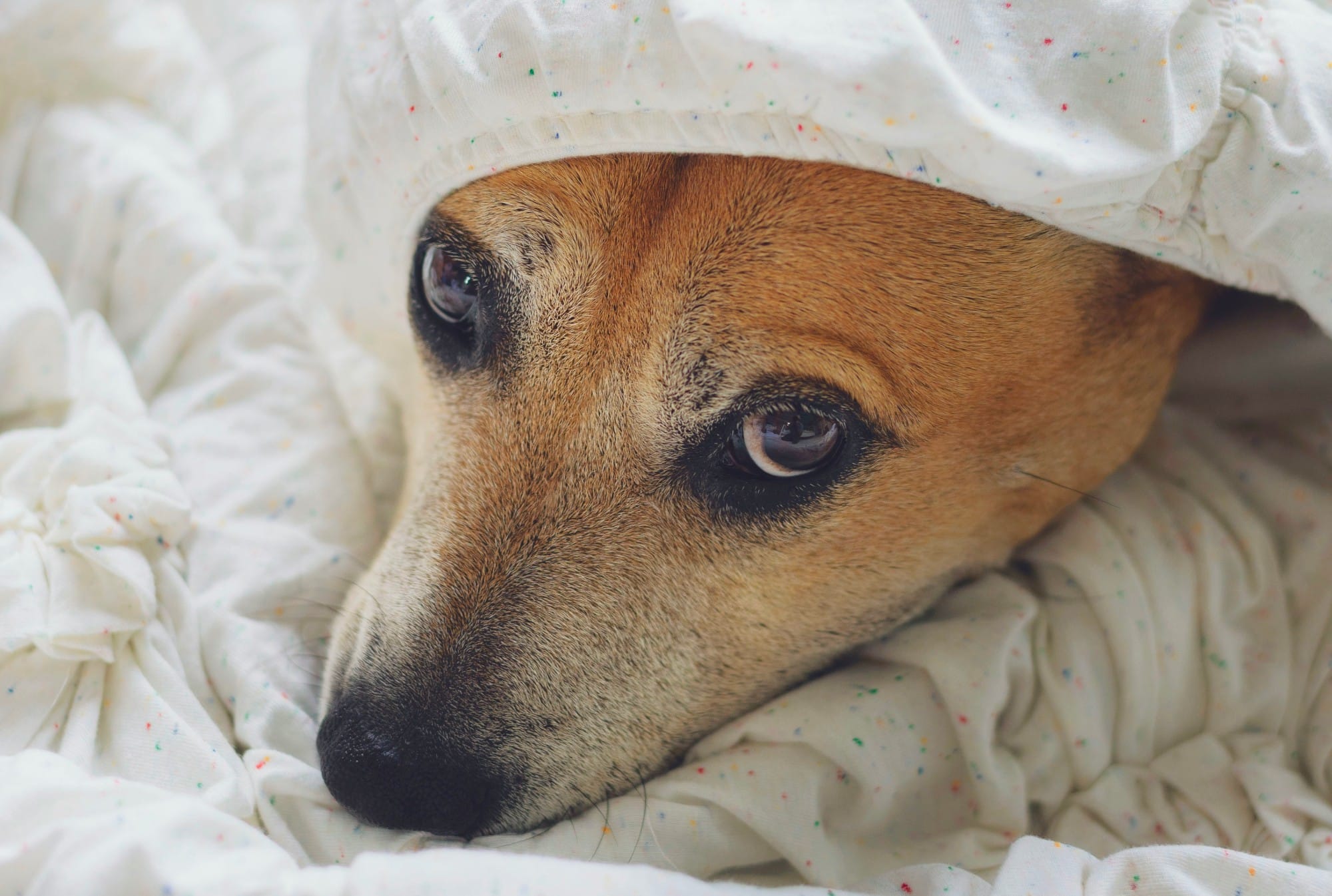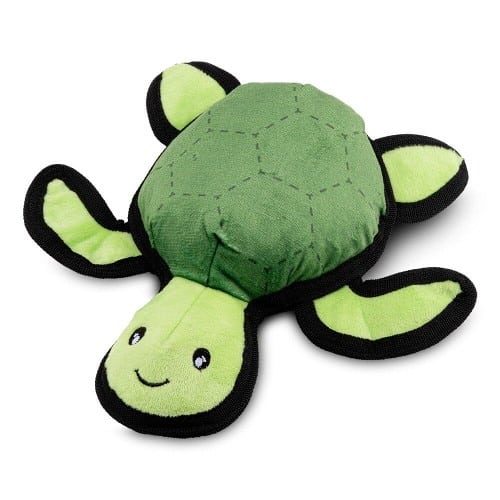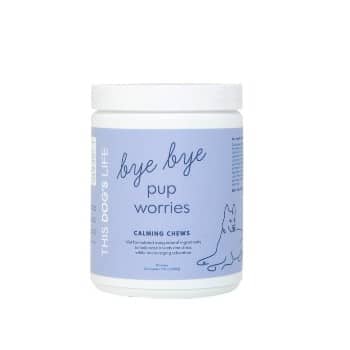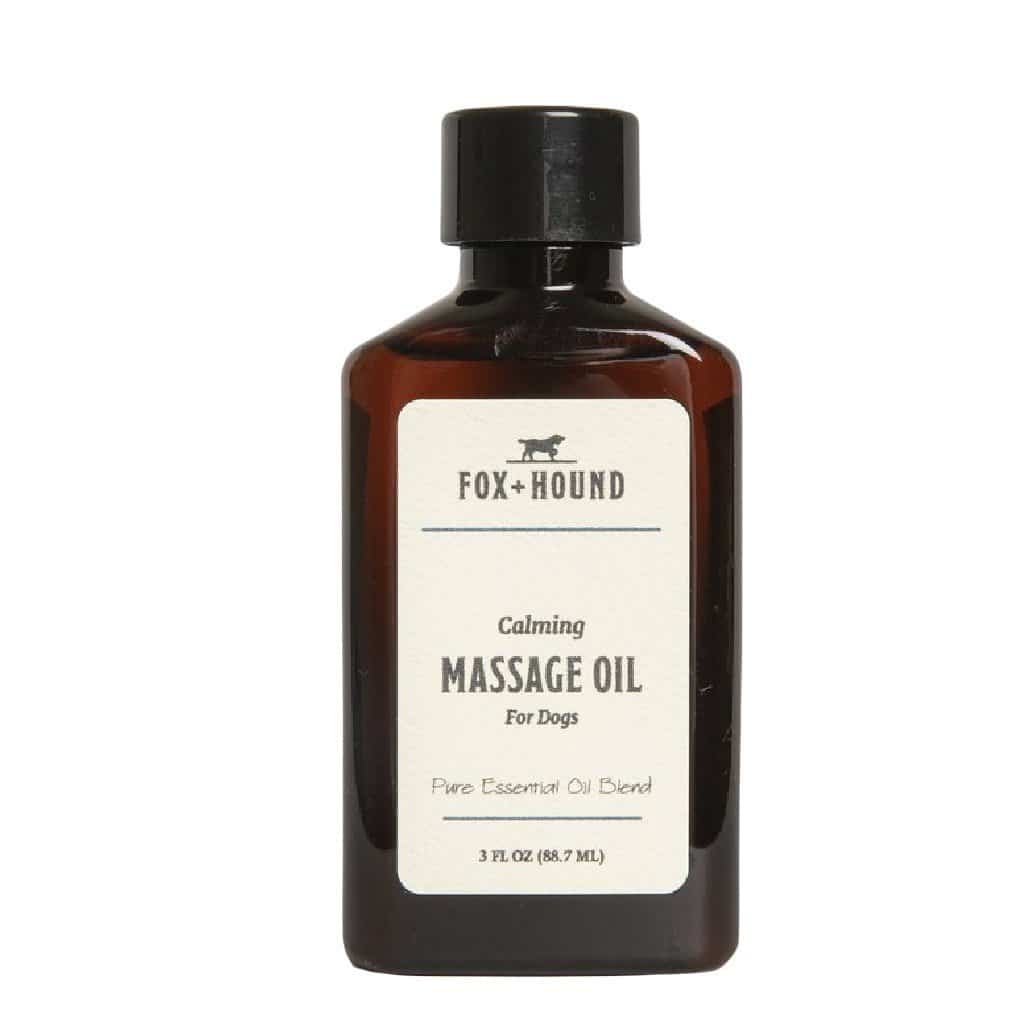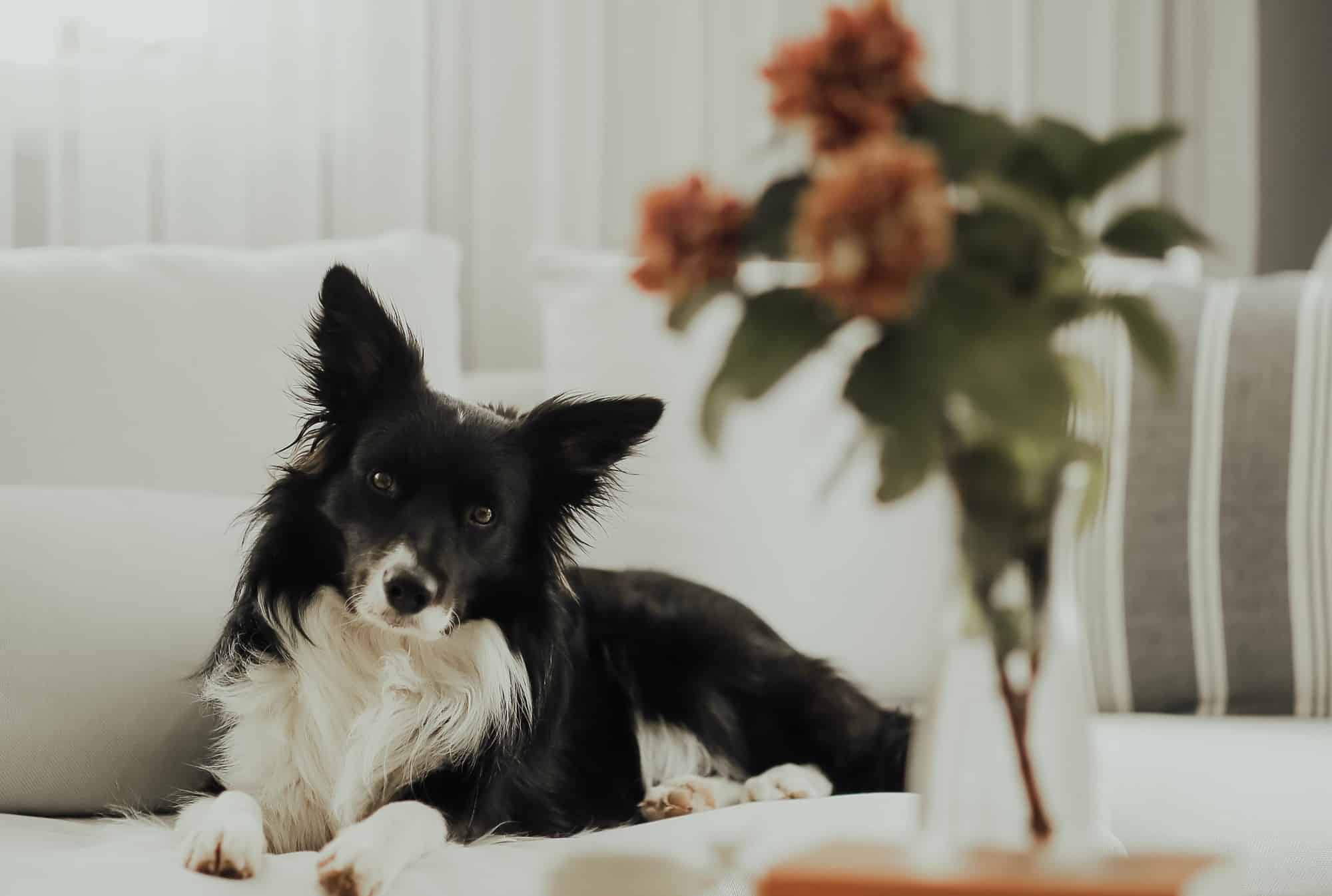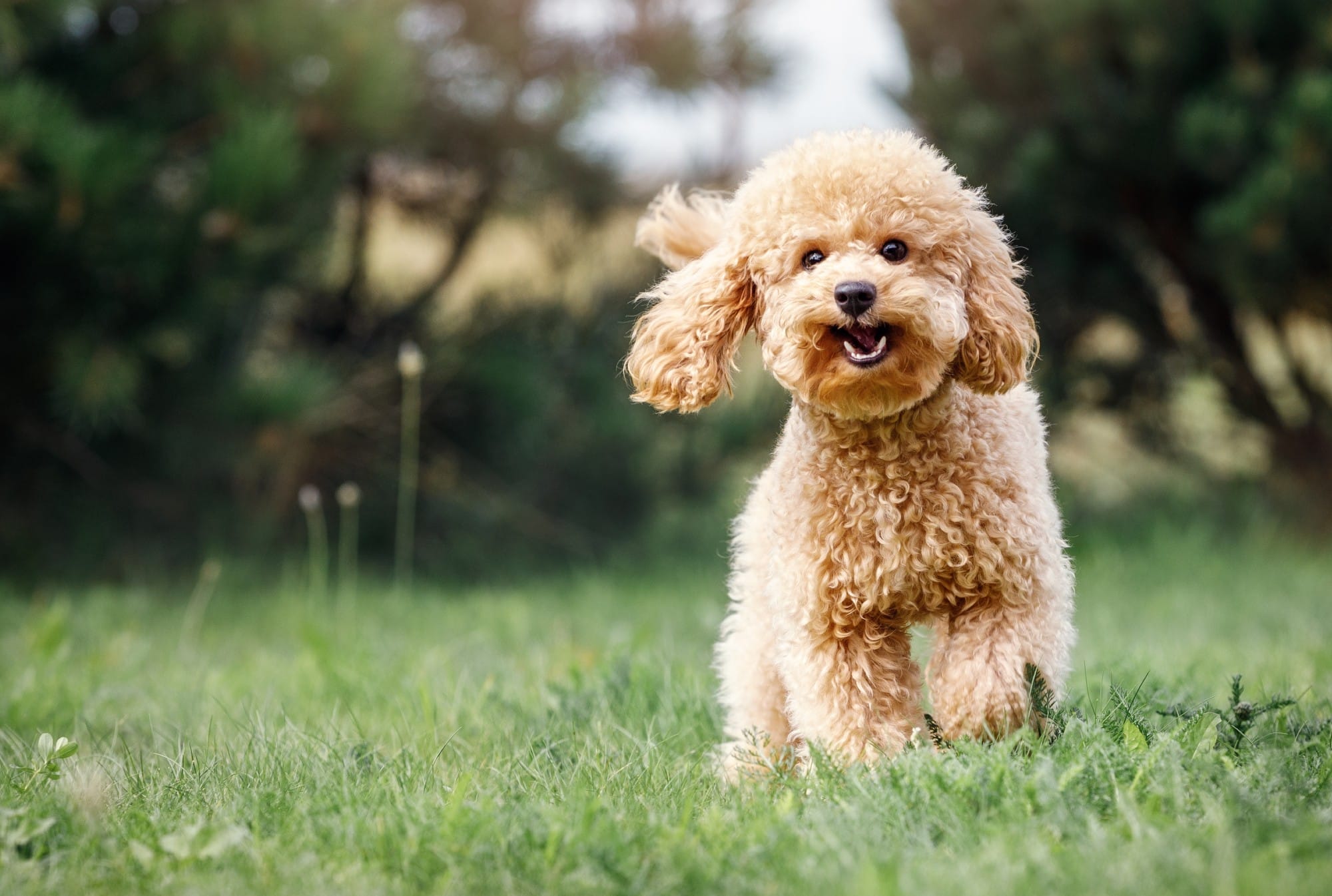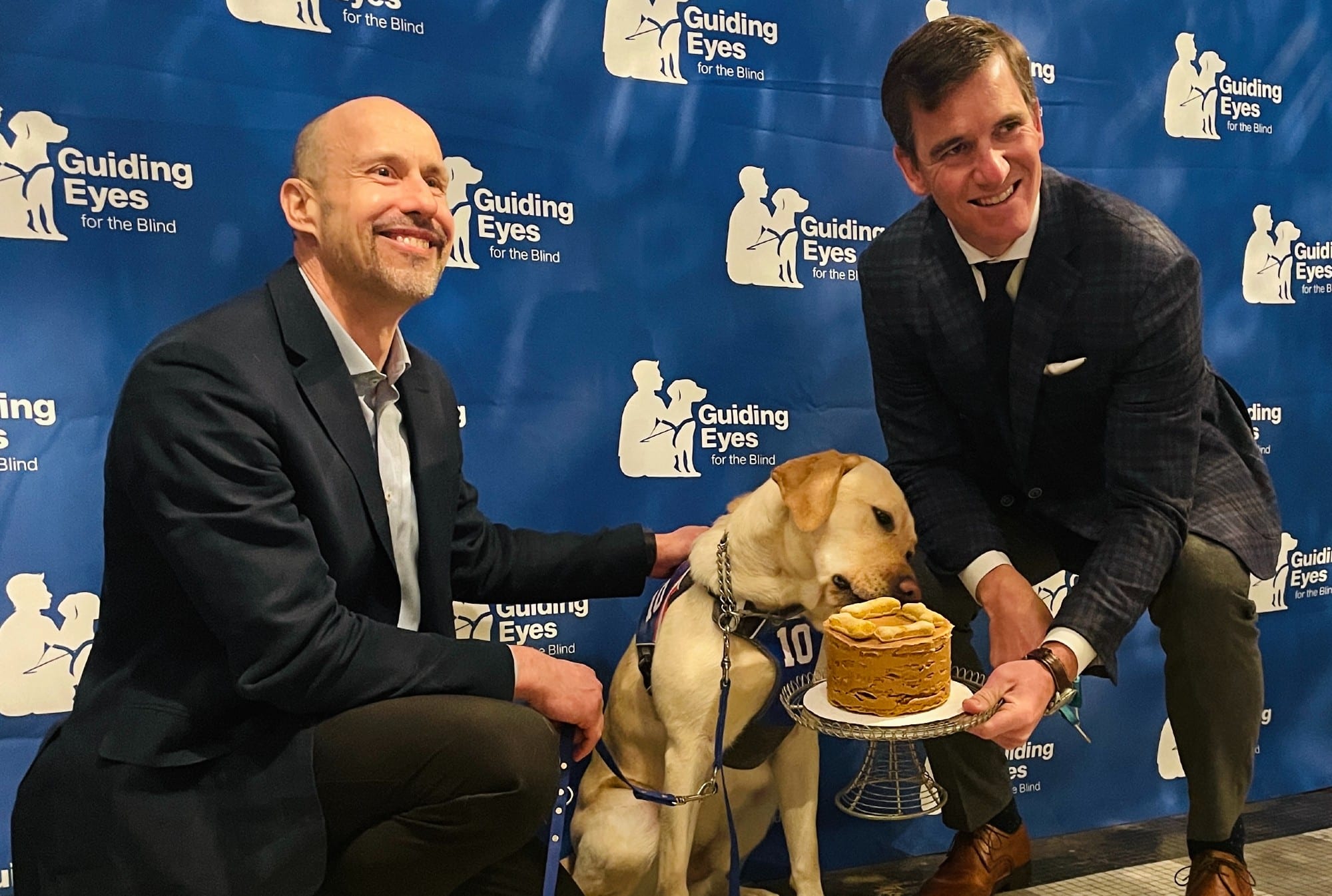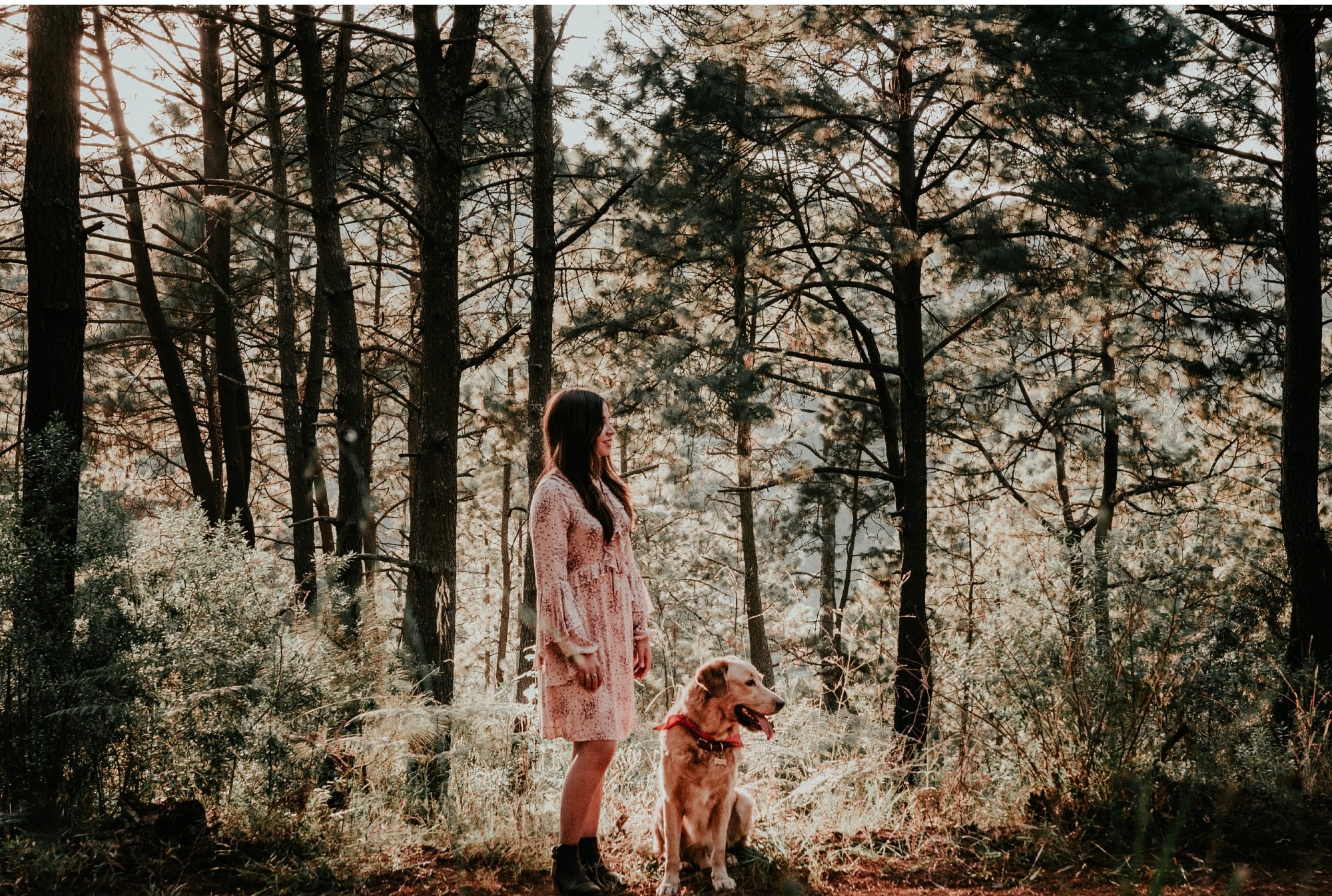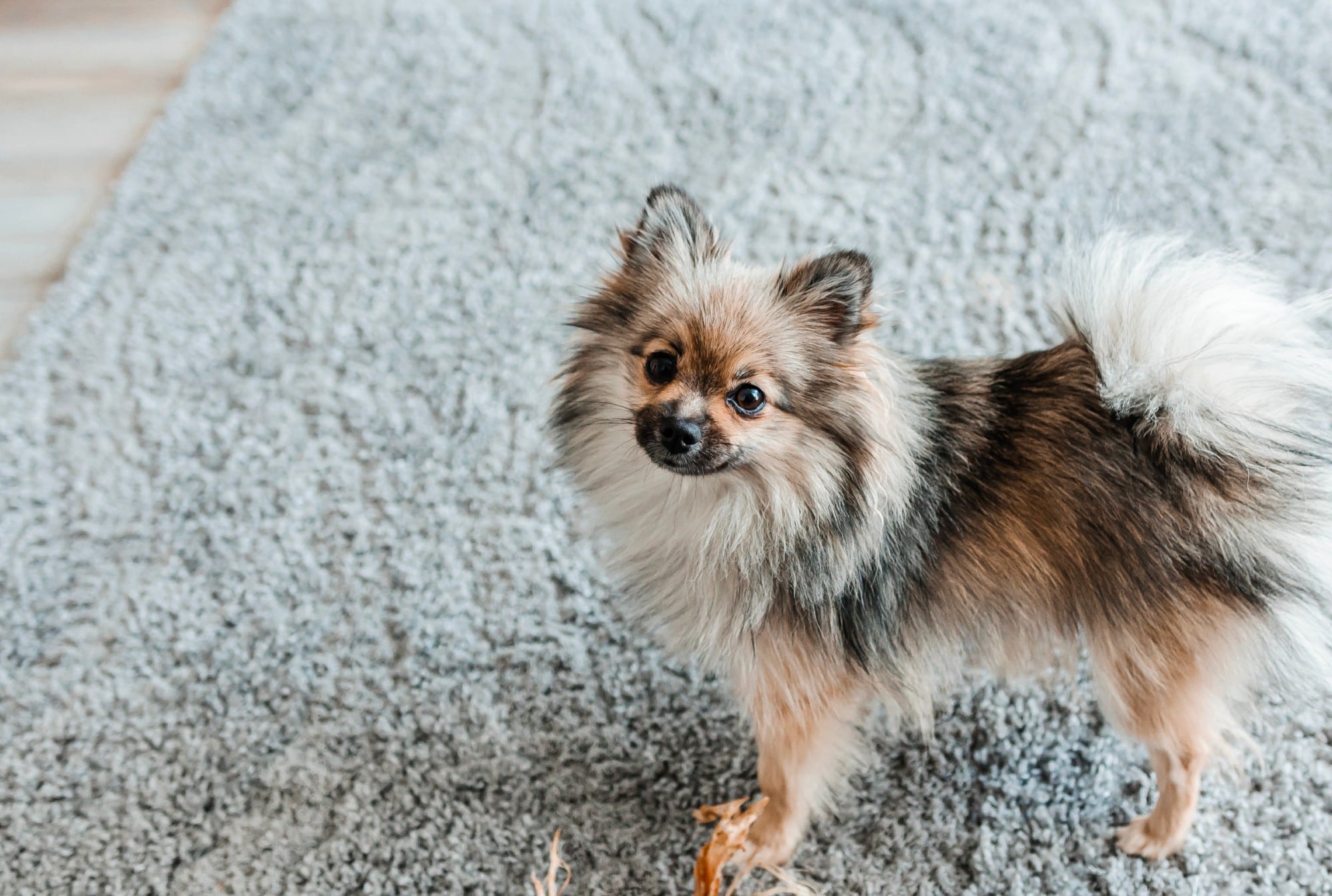This post contains products independently chosen (and loved) by our editors and writers. This Dog’s Life may earn a small commission on qualifying purchases of the products we link to.
Just like us, our dogs can suffer from anxiety. In fact, over 70% of dogs will have some sort of anxiety in their lifetime, according to research.
Whether it’s triggered by travel, thunder, or you leaving, when your pup is stressed, you want to do everything in your power to calm your four-legged friend. Indeed, studies have shown that dogs with anxiety have a decreased lifespan and are more prone to diseases. Plus, they can end up in shelters or be re-homed due to destructive and aggressive behavior.
The good news is that most pup’s anxiety can be treated, or at least lessened.
Read on to learn what is dog anxiety, the signs, and how to calm your anxious dog, according to trainers and vets.
You can also use the links below to jump straight to the section of your interest:
- Why are Dogs Anxious?
- Symptoms of Dog Anxiety
- Ways to Reduce a Dog’s Anxious Behavior
- Engage in Physical Contact and Touch
- Get Some Exercise In
- Consider the Desensitization Method
- Provide a Safe Space for a Quiet Break
- Give a Calming Supplement
- Use Music Therapy
- Get a Calming Coat or T-Shirt
- Give Your Dog a Massage
- Provide Interactive Toys and Games
- Consider Alternative Therapies
- Keep a Consistent Schedule
- When to Seek Professional Help
Why are Dogs Anxious?
Anxiety in dogs is the anticipation of imagined or unknown potential dangers.
The most common reasons for anxiety in a dog include:
- Biological factors: Genetics and breed disposition can result in a nervous dog. One study showed Shetland Sheepdogs, Miniature Schnauzers, and Wheaten Terriers as some of the most anxious breeds. But it is important to keep in mind, every dog is an individual and not to overly rely on generalizations.
- Life experiences: Lack of socialization, a traumatic event, neglect, abandonment, or confinement may result in dog anxiety.
- Fear anxiety: Unsure of an environment or unaware of expectations can cause dog anxiety. Loud noises, strangers and unfamiliar dogs along with new places and situations can all make a dog feel nervous.
- Separation anxiety: Between 14-20% of dogs have separation anxiety, which is triggered when they are left alone or separated from their humans, fearing they won’t return.
- Sickness: A disease, illness, or injury can result in a dog feeling nervous and on guard, as he may feel vulnerable.
- Age-related anxiety: As dogs get older, they may lose some of their senses, including vision, smell, and hearing. With less information available to them, they may get confused, resulting in fear.
Figuring out the root cause as to why your dog is experiencing anxiety is the first step in developing a treatment plan with a professional.
Symptoms of Dog Anxiety
A stressed and worried dog can trigger many bodily reactions that are typically related to fear, including:
- Trembling or shaking
- Barking, whining, or howling
- Tail tucked between legs
- Excessive panting or drooling
- Obsessively pacing or other compulsive behaviors
- Destructive behavior, like scratching, chewing, or digging
- Going to the bathroom in inappropriate places (e.g. in your home)
- Aggressiveness
- Depression
Dr. Rachel Barrack, a licensed veterinarian and certified veterinary acupuncturist at Animal Acupuncture, warns us to not ignore unusual behavior occurring in your dog. “Anxiety can be mentally and physically taxing on your dog and can result in injury to your pet, yourself, and even another dog or person,” she says. “If your dog is displaying these behaviors, speak with your veterinarian to rule out any underlying medical conditions.”
Ways to Reduce a Dog’s Anxious Behavior
Engage in Physical Contact and Touch
Probably one of the simplest ways to calm your dog is to pet him when he’s feeling anxious. Touching your dog in the right spots using a non-threatening approach can alleviate mild anxiety. The reason being is that petting your dog, considered a bonding moment, can release the hormone oxytocin, also known as the love hormone.Most dogs are comfortable being pet on the shoulder, chest, and base of the tail. Other areas — like the muzzle, top of head, and belly — may make some dogs feel uneasy. Keep in mind, if your dog is super stressed out, this could make it worse.
Get Some Exercise In
Exercise can work wonders for a stressed-out dog, as it can be a great distraction.
“Helping your dog redirect onto something else is a great way to take their mind off of what is bothering them. Some dogs can change their mood by playing fetch, others by doing training, and others by having positive social interactions,” says Shelby Semel, a canine behavior expert and trainer.
It can also release feel-good hormones, known to reduce stress.“Exercise promotes the release of endorphins and that helps to ease anxiety,” says Dr. Babette Gladstein, a New York City-based veterinarian.
If you notice any anxious behavior in your pet, such as pacing or shaking, grab his leash and take him for a stroll around the neighborhood or play with him in your yard or park.
Consider the Desensitization Method
A training technique that involves getting dogs gradually used to scenarios or stimuli that trigger anxiety is desensitization.
Semel recommends starting desensitization sessions off in very small increments and slowly building on exposure time.
“For example, if your dog is scared of other dogs, seeing one from 25 feet away might be your starting place. If at 25 feet they are still displaying signs of anxiety, you would want to start even further away,” she says. “Small increments are key with desensitization as if you push too far too fast, you will end up going backward in your training process.”
Or if your dog fears a certain noise, you can start playing the sound at a low level and gradually work on increasing the volume.
Semel recommends offering your dog high-value treats, such as chicken or cheese, during these training sessions to allow your pup to start associating the stressful stimuli with something rewarding.
This technique should be under the supervision of a professional and be a positive experience, as you want to make sure you are making your dog feel more comfortable with unknowns, not less.
Provide a Safe Space for a Quiet Break
A cozy canvas crate, quiet corner, or spare bedroom can all be wonderful safe spaces for anxious dogs.
“Giving your dog a break in his safe space can definitely help. However, if your pet has anxiety about being left alone or has not been acclimated to their safe zone, it may not do the trick,” explains Semel. Adding your dog’s favorite toys, blankets, or beds in their safe space can help promote relaxation.
Made from recycled materials, the toy is perfect for chewers, fetchers, and wrestlers. The panels are woven together with double stitching and reinforced with a second layer of cloth while the squeaker is puncture proof, providing lots of fun for your pooch. Always supervise your dog during playtime.
She also recommends playing calming music near your dog’s safe space or spraying it with calming pheromones to subdue him. You can even try a white noise machine if that can help reduce outside sounds
Give a Calming Supplement
Studies have shown that calming supplements may be an effective tool for easing anxiety, fear, and stress for general anxiety and travel Most calming supplements contain one or more of the following active ingredients:
- Valerian root
- Melatonin
- L-theanine
- Chamomile
- CBD or hemp
Talk to your vet before starting your dog on any supplement program, and always follow the instructions on the back of the label. Our vet-formulated Bye Bye Pup Worries wellness supplements is a bestseller as it uses natural ingredients to relieve nervousness and stress.
Formulated by a vet and backed by science, our Bye Bye Pup Worries use powerful natural ingredients like l-theanine, lemon balm, and green tea to helps relieve nervousness, anxiety, and stress, so you can have a relaxed and happy pooch. Made in the USA.
Related: Understanding the Causes of Anxiety in Your Dog
Use Music Therapy
Never underestimate the power of a good song. Indeed, researchers found that playing classical music encouraged shelter dogs to bark less and rest more. Other types of music that help dogs relax include soft rock and reggae.
Check out DogTV, Spotify, and Relax My Dog provide curated playlists to soothe a stressed-out pet. They are also great to muffle scary outside sounds, like thunder, horns, and fireworks.
Get a Calming Coat or T-Shirt
There are several brands of garments and wraps, including ThunderShirt, designed to calm stressed dogs. These clothes work by applying gentle pressure to the dog’s torso, causing a calming effect similar to a weighted blanket or embracing a person in distress.
While few studies have been done confirming the efficiency of calming clothing, tons of anecdotal evidence suggests that they actually do work
“Calming jackets with hoods are effective because they limit the amount of visual input since the eye is somewhat shielded,” says Dr. Gladstein. She adds there are other ways to use the eyes to help relax your dog. “The optic nerve in the eye is the largest nerve in your body and when you want to calm your pet down, keep the input to the eyes to a minimum by dimming the lights and turning the television off.”
To get your pet comfortable in his calming coat, vest, or wrap, put it on him for short lengths of time when he is calm and happy, such as at dinnertime. Don’t leave the coat on your dog for extended periods, as continuous wear might decrease its effectiveness during times of heightened anxiety.
Give Your Dog a Massage
Don’t you just love a relaxing massage to ease stress and sore muscles? So will your dog! Hands-on contact during a massage can reduce anxiety during fireworks and thunderstorms. Massages can also soothe stiff muscles and tension caused by stress.
Animal massage therapist Gene Rukavina of Dancing Dog Massage explained to us in a previous article that massages can improve blood circulation, relax your pet’s body, and release endorphins, the body’s natural feel-good chemical that can ease anxiety. Start at the neck and work your way down, or focus on a specific area that may be tensed up.
The perfect blend of oils to put a dog at ease. Massage into your dog’s skin and coat as desired, giving extra attention to rough skin, brittle coat, or areas that may need a little TLC..
Provide Interactive Toys and Games
A cooped-up dog, especially one who suffers from separation anxiety, with no engagement can easily become stressed and entertain himself by chewing, digging, or barking.
“The biggest concern for most of our pets is boredom. They are not able to have the outlet to be able to do the normal things they would do in the wild,” Dr. Andrea Y. Tu, veterinarian and the medical director of Behavior Vets of NYC, told us previously. “If you think about dogs in the wild, the majority of their time is spent looking for food, hunting for food, eating it.
Tu says that dog puzzles give pups an outlet for mental and physical energy. Puzzles or toys that make your dog work to find treats can encourage independent playtime, provide mental stimulation, and distract your pet from his anxious emotions.
Consider Alternative Therapies
Alternative therapies, such as acupuncture, herbs, and Feng Shui, may pacify anxious dogs.
“Acupuncture can produce a noticeable calming effect in anxious pets. Chinese herbs are often used in conjunction with acupuncture to optimize and lengthen its effect,” says Dr. Barrack. “I have seen firsthand how life-changing Chinese medicine can be for anxious dogs and their owners.”
One brand that uses calming herbs for dogs is Rescue Remedy Pet, which encompasses five flower essences to help ease nervousness and excitability. Just put the drops in a water bowl.
Also, some dog parents swear by pheromones, like the ones in the Adaptil ThunderEase Dog Calming Pheromone Diffuser, which are said to also help relax our pups, as they release a comforting scent that mimics the “calming messages” mother dogs release to their puppies.
Boosting good vibes in your home through Feng Shui might also benefit your stressed pet. “Feng Shui is all about energy, or chi. In essence, you can think of feng shui as acupuncture for your home,” Patricia Lohan, a Feng Shui expert, told us in an earlier post. “It is a way of keeping the energy flowing in and around your home.” For instance, Lohan recommends reducing the clutter or placing your dog’s bed away from any doors that may open and disturb them to provide a more relaxing environment.
Keep a Consistent Schedule
Dogs are definitely creatures of habit and thrive on routine. Feeding and walking your dog at the same time every day can keep him calm. If you need to work long hours, hire a dog walker to take your pup for a stroll around the block during his usual walking hours. Have a schedule in place will make your dog feel secure and ensure she knows what to expect throughout the day.
When to Seek Professional Help
If your dog suffers from prolonged, excessive anxiety, it may be in his best interest to seek the help of a professional.
“If a dog’s stress or anxiety is affecting either their quality of life or your own quality of life, it is time to seek help. A certified trainer or behaviorist will help assess the situation properly and guide the next steps. It’s even better if you can figure it out before it starts negatively impacting their life because it’s easier to fix,” said Semel.
Related: Understanding and Addressing Dog Anxiety
This article is for informational purposes only. It is not, nor is it intended to be, a substitute for professional medical advice, diagnosis, or treatment and should never be relied upon for specific medical advice.













